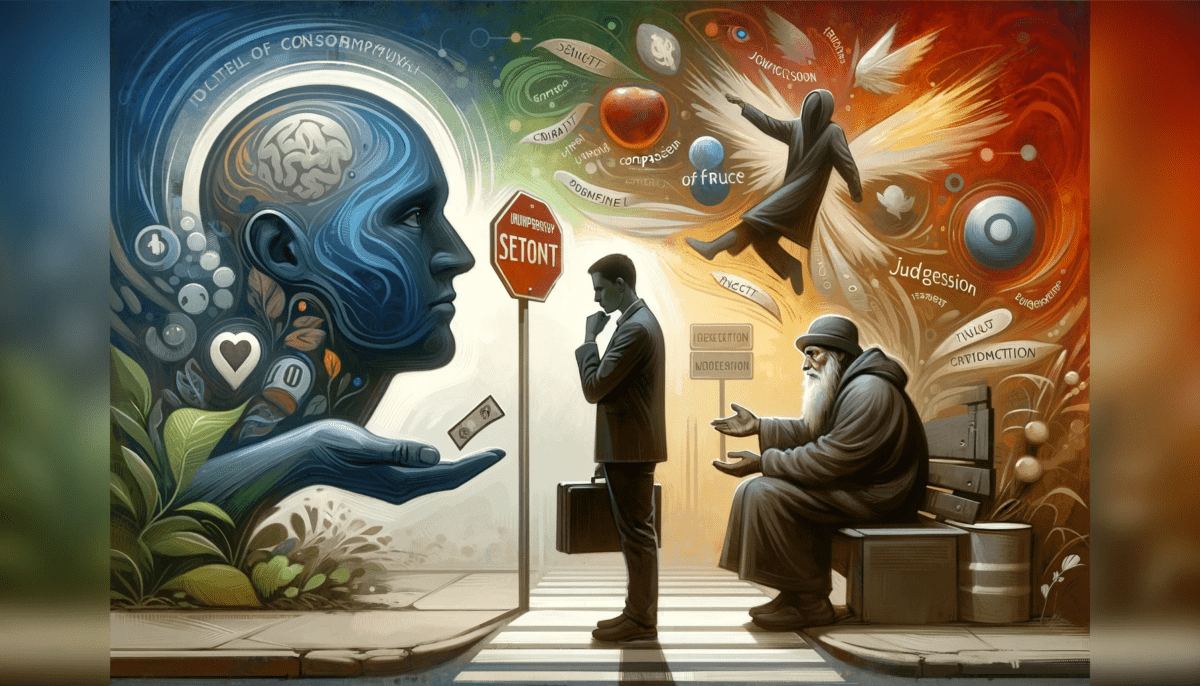Panhandlers
It seems impossible to say
whether panhandlers
need my money or not.
If their motive is truth,
more power to them.
If their motive is a scam,
more power to them.
Even if I were to ask,
I may never truly know
why panhandlers panhandle.
Now the attention turns to me.
Motives aside,
the question now becomes
whether I should fulfill
a non-confirmable need.
I am now judging myself,
rather than the panhandler.
Do I believe
that trustworthy creatures
are the only beings worth compassion?
Is it even compassionate
to encourage panhandling?
If I give,
I will give
to feel better about myself.
That’s not compassion
for me OR the panhandler.
Or the ten other cars at the intersection.
And so I rarely give,
and accept my decision
without beating myself up.
I will allow some other soul
to feed their own insecurity.
It will happen.
I trust that the panhandler
will be fine no matter what I do.
In this life or the next.
I trust that I
will be fine no matter what I do.
In this life or the next.
Teach a man to fish
comes to mind.
These are the words
of a prideful fisherman.
Who is so full of himself
the he actually believes
that he can impose an answer
that solves a so-called “problem.”
All in all,
I would say that this little
bit of introspection is worth a dollar.
Regardless of the original reason
for the panhandling.
Sure. Here you go.
I will give you a dollar.
But only conceptually.
Thank you for your service.
Trail Wood,
1/20
In this introspective journey, we navigate the complexities of human interaction and the intricate web of motives, judgments, and compassion that accompanies the act of giving to panhandlers.
The Uncertainty of Motives
Acknowledging the impossibility of fully understanding the motives of panhandlers highlights a fundamental uncertainty in human interactions. We often find ourselves unable to discern the true needs or intentions of others, which challenges our decision-making process.
Self-Reflection in Giving
The focus then shifts from the panhandler to oneself. The act of giving, or choosing not to give, becomes a mirror reflecting our own values and beliefs. It raises profound questions about our criteria for compassion and the true nature of our charitable actions.
Compassion Beyond Trustworthiness
Contemplating whether compassion should be extended only to those deemed trustworthy opens a dialogue about the conditions we place on empathy. It challenges us to consider the essence of genuine compassion, which may not always align with our judgments or expectations.
The Dilemma of Encouraging Panhandling
The question of whether giving money is an act of encouragement or a genuine aid adds another layer to this contemplation. It probes the impact of our actions, not just on the individual but on the broader social context.
Personal Motives in Giving
Recognizing that giving may sometimes be more about alleviating one’s own discomfort than helping another exposes the complex interplay between altruism and self-interest. This realization calls for a deeper understanding of what drives our actions and the honesty to acknowledge them.
Acceptance of Decision and Trust in Life
The decision not to give, coupled with the acceptance of that choice, reflects a trust in the broader tapestry of life. It’s an acknowledgment that our actions, while significant, are part of a larger dynamic where each individual’s journey is interconnected yet distinct.
We are Space Monkey.
Summary
We reflect on the internal debate surrounding the act of giving to panhandlers, exploring the uncertainty of motives, the nature of compassion, and the introspection involved in the decision-making process. This contemplation reveals deeper questions about trust, empathy, and the impact of our actions, leading to an acceptance of our choices and a trust in the unfolding journey of life for ourselves and others.
We welcome thoughts on this introspective exploration of giving, trust, and the nature of compassion in our interactions with others.


















Leave a Reply